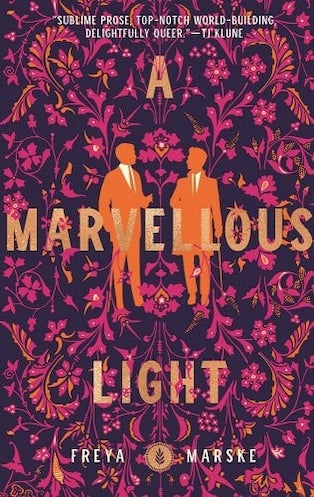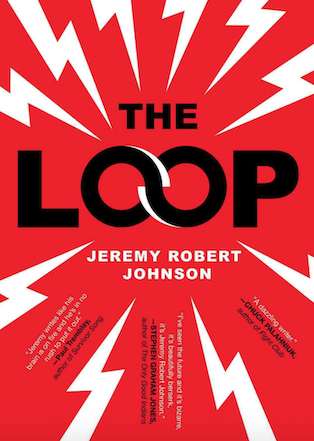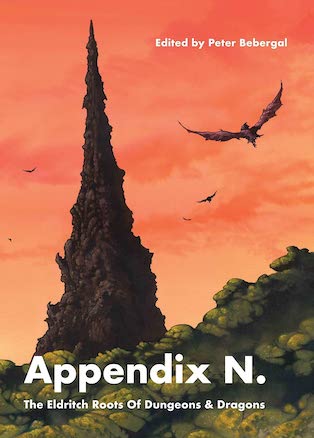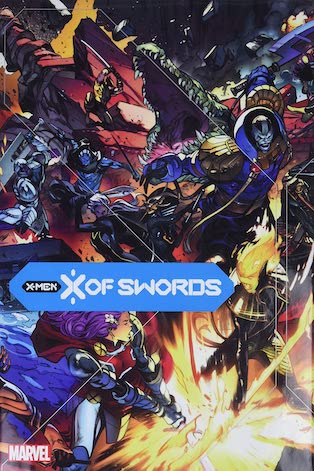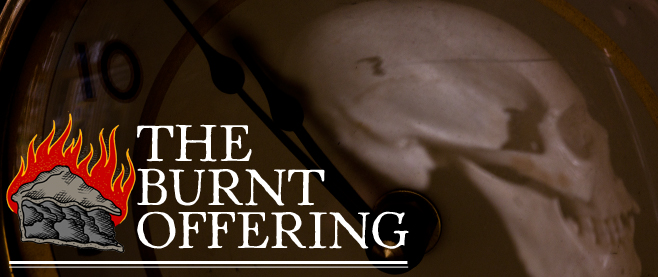
The Best Books of 2021
Another year, another COVID variant, and another round of phenomenal book nominations for the Best of the Year list here at Unwinnable. Even though a lot of the Unwinnable team spent time diving into the world of Dune, a whole lot more reading was finished across the board. And, unlike last year, it seems like people were even starting to catch up with more recent books. Our talented team of Unwinnable readers have come up with a distinct top 10 list, including (among other books) a dense new X-Men run, an update on Gary Gygax’s infamous Appendix N, and a new work from a major hack horror writer. So, as the new year sets in, it’s time to relax in your home and pick up one of these books and disappear into a different world, maybe one not populated by new COVID variants.
– Noah Springer and Levi Rubeck, Curators
The Secret Goatman Spookshow, by Jonathan Raab
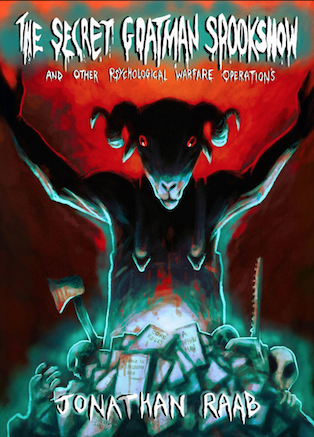
Jonathan Raab refers to himself as a “hack horror writer,” and that affection for B-grade horror shines through in pretty much every one of the stories in this, his debut collection. But he’s never just making lazy pastiches of the slasher flicks that decorated our screens when we grew up, either. He’s taking the subtext that was often there – or that we saw there, even when it wasn’t – and making it text. Repurposing camp into paranoid, conspiracy-laden, doom-synth chronicles of the secret world behind the world, the scratching at the back of your brain, on the other side of the tube, on the outside of your window as you fall asleep. A reminder that horror can be fun while still being smart, political, character-driven, psychological, and more. Plus, it’s hard to beat that title!
– Orrin Grey
A Marvellous Light, by Freya Marske
A Marvellous Light is what happens when you ask for a magical gay story and it actually delivers – a himbo mundane and his magical librarian boyfriend. It is cute and interesting; the magical world systems are actually good and make sense, ad there are characters that you care about. It’s a must-read from this year.
– Amanda Hudgins
Oblivion Song vol. 5, by Robert Kirkman
I’ve been following Robert Kirkman’s Oblivion Song since its first trade paperback shipped in early 2018, and if there’s anything disappointing about the series, it’s the fact that the recently released sixth volume concludes the story a bit more abruptly than I was ready for.
For those unfamiliar with the series (one of Kirkman’s handful of post-Walking Dead endeavors), it begins with an incident where 300,000 people in Philadelphia get sucked into an alternate world through a mysterious rift. After the federal government abandons its efforts to find any survivors, or figure out what exactly happened, protagonist Nathan Cole finds a way to transport himself into Oblivion to find his brother who was lost in the attack.
This fifth volume masterfully precedes the plot’s final stretch run, moving three years into a future where things have gone from bad to worse. While the series takes its time to develop at a methodical pace, weaving narrative threads between Nathan and his strained relationships with his brother, his girlfriend (who happens to be a government agent), and nearly everyone else around him, this is where the big picture begins to more fully come into view (carried in part by Lorenzo De Felici’s distinctive visual style).
A strong entry that sees the series hitting its stride, just in time for its highly anticipated conclusion.
– Ben Sailer
The Loop, by Jeremy Robert Johnson
After reading Jeremy Robert Johnson’s hard-to-find, disgusting (compliment) short story collection They Live Inside You, I was immediately ready to commit to a full-length novel. I read a lot of horror, and at this point, it takes something special to make me genuinely uncomfortable again. Johnson has got it, and he flexes it throughout The Loop.
To be honest, a lot of elements of this book are going to be like something you’ve read before. A quiet little town, an experiment gone wrong, a cast of characters watching people they’ve known all their lives suddenly undergo horrific transformations. Johnson has read it all too, and I believe he wouldn’t have touched these elements if not for having something new to bring to the table. The Loop has a breakneck pace that makes it incredibly hard to put down and has you feeling like you’re also living the scariest night of your life. Lucy is one of the most engaging horror protagonists I’ve met. You will not guess the delightfully original identity of the evil in this book before it reveals itself.
Reading is climbing up in priority in my list of hobbies, but I still trudge through novels most of the time. It was great to find myself returning to a book so hungrily that I was able to shake off the miserable pull of social media and the new daily horrors for a moment, and participate in a horror of my own choosing instead.
– 2 Mello
Klara and the Sun, by Kazuo Ishiguro
Kazuo Ishiguro is a wonder, telling stories that often tilt toward allegory about the forward march of time. In 2021’s Klara and the Sun, Ishiguro combines the fable-like dreaminess of The Buried Giant with the dystopia of Never Let Me Go. Klara is a sentient artificial intelligence (AI) in a recognizable near future where the world’s wealthy children have access to AIs as companions and caretakers. At first, we watch as Klara is arranged to her best advantage in the window display for an AI storefront. She is sold to a family with a fragile child whose medical condition turns out to be another symptom of the dystopia, and Klara must observe, theorize, and keep up with her young companion’s life events while still often being treated as furniture. Ishiguro revisits some of his strongest themes, which include the nature of passing time at variable speeds for his characters. He also sets this story in a world that hearkens back to the trans-Atlantic accents and outside-of-time settings of classic Hollywood films, giving everything a feeling of sterility and disconnection from life’s blood. Indeed, Klara isn’t the most robotic by a long shot.
– Caroline Delbert
Appendix N, by Peter Bebergal
Appendix N, the thing from the original Dungeon Master’s Guide, is a bit played out at this point – a list of (mostly) fantasy fiction that D&D creator Gary Gygax professed inspired the creation of the game. For a long time, for a lot of people, it was a gateway to a larger world. But is it, 40+ year old list by a straight white guy, still relevant in the age of the internet, when more value is rightly placed on diversity of voices, many of which were marginalized or surpressed back in the 70s?
Appendix N, the short fiction anthology edited by Peter Bebergal, answers yes, in two ways. First, his selections render a far more varied and vivid fantasy landscape than you might expect. Fantasy, as both a genre and a category of marketing, has actually become more rigid in the last three decades. Appendix N reminds us how weird and rules free the genre can be.
But perhaps more importantly, Appendix N shows us how the idea of a list of important works is a valuable personal exercise. Bebergal’s introduction lays out the decisions he made in assembling the anthology, and those naturally diverge from Gygax’s. And in being confronted by such a list, it is impossible to not wonder about what I’d include. How about you? In this way, Gygax’s list is increasingly unimportant but the idea itself of making lists seems all the more crucial. How else will we discover new works by new voices, or unearth wrongly forgotten ones, without something to guide us?
– Stu Horvath
X-Men: X of Swords
I love X-Men villains. Thus, it was strange for me to have to get used to Apocalypse becoming…a board member? I don’t presume to understand much of what is happening moment to moment in Krakoan politics.
But, strangely, X of Swords feels like the ultimate Apocalypse story. The one that revolves on him more than just as the instigator but as the story nearly of nearly what it means to be a mutant living on Earth. It’s weird to see him as a sort of family man, or even just having a family at all. Of course, his family is weird and overly strong.
What I love about X of Swords is how vulnerable it all feels. In the most recent era of X-Men it’s begun to feel… stake-less. People can die and just come back which is great because character deaths are super annoying and overwrought. Except, now, in this deathless era, there’s never been a worry about people dying. Except now, in the weird tournament arc of Otherworld, people can die and if they come back, they come back weird.
X of Swords is not for the uninitiated. It’s a bad jumping on point, a very dense story that relies heavily on not just an understanding of X-Men but also some of the weird tangential stuff going on with Captain Britain. But if you’re a fan of some of the deeper, weirder things happening with X-Men, X of Swords is a joy to read, funny, violent, strange and worthwhile.
– David Shimomura
Dracula, by Bram Stoker
I like to read Dracula sometime around October every year. This spring, however, I was turned on to Matt Kirkland’s email newsletter project, Dracula Daily, where he’d separate out Stoker’s epistolary entries and send each one directly to one’s inbox on the corresponding date they were written or received, starting on May 3rd and ending November 7th.
If you told me signing up to a substack was how I was going to enjoy a book I’ve read probably a hundred times in a truly fresh way, I wouldn’t have believed you, but that’s exactly the experience Dracula Daily gave me. The chapters covering Jonathan Harker’s journal when he first arrives at Dracula’s castle and encounters the Count himself are already deliciously tense, but stretching them out over several days ratcheted up the pressure as he discovered his ensnarement and experimented with making his escape. Despite knowing the ending to those early trials of Jonathan’s like my own heart, I found myself worrying for his sake throughout the day and eagerly checking my inbox each morning to see what terrors he encountered in the dark night.
Reading the meted-out ship’s logs from the cursed Demeter had a similar effect. Written by the captain’s hand in one or two lines daily, the slow creeping dread caused from an unnatural mist and the methodical disappearance of the crew seeped into the captain’s words day by day. His fear crawled into my stomach like a worm then settled like stone. Not since I was ten years old and reading Dracula for the first time have I felt such a shiver in my bones.
– Sara Clemens
Where it All Went Wrong, by Dan Ozzi
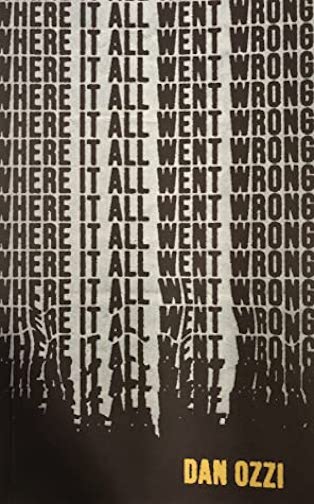
Dan Ozzi’s book Sellout should probably be on this list, but I haven’t read it yet. As a chronicle of some of my favorite bands and their dalliance with major label life back when making such a transition was blasphemy and betrayal. But before Sellout was released, Ozzi let loose this tidy memoir of nine personally transformative albums, and how they hit his life at just the right (or wrong) moment for maximum infection. I knew Ozzi did good work, having enjoyed the unflinching biography of Against Me! frontwoman Laura Jane Grace he co-wrote and his music journalism in general, but I wasn’t prepared for just how hard Where it All Went Wrong would hit. Ozzi builds the little house of his psyche, tracing the impact of Michael Jackson and Dead Kennedys and the rest in a way that outlines how music (and culture in general) can be so crucial in shaping each of us. He’s not trying to make the case or critically vouch for the bands, but as the best autobiography and criticism does, nimbly pulls apart the ways in which the right music found him at the right time. When he hits with a spread of Frightened Rabbit lyrics lapping down the page, I knew the feeling.
– Levi Rubeck
———
You can find a selection of these books on Bookshop. This is an affiliate link.
